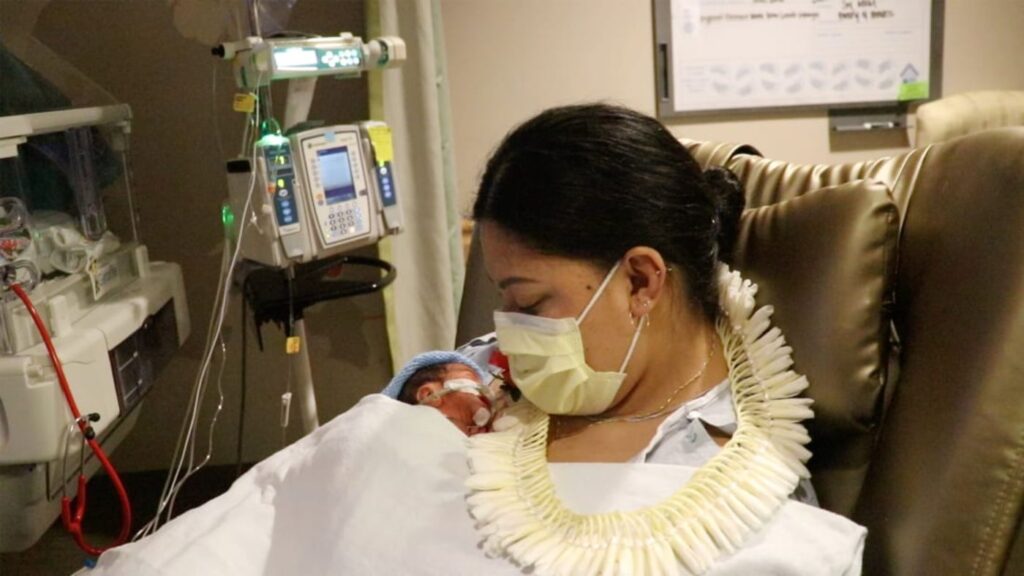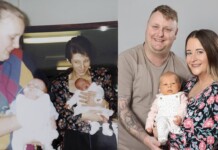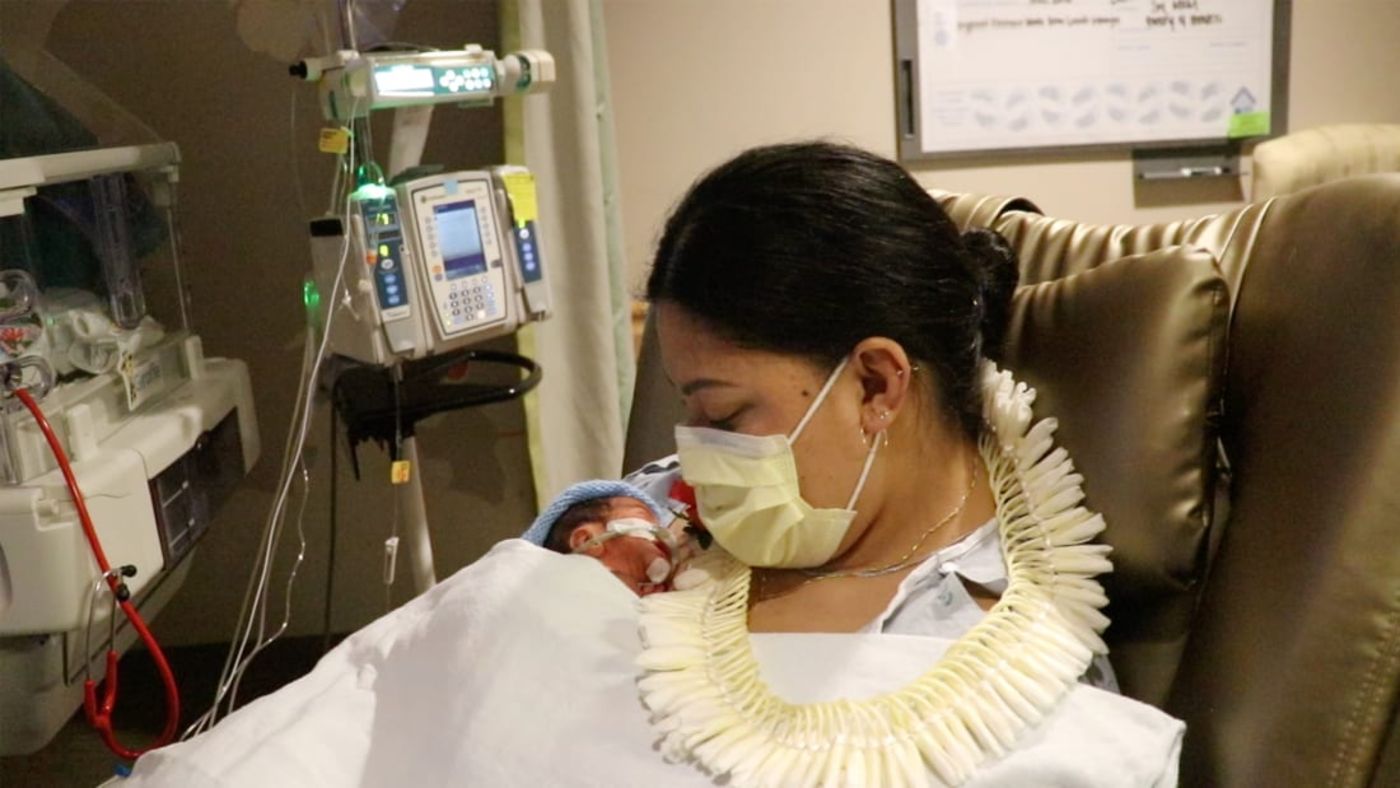
In a hospital in the Argentine city of Cordoba, a wonderful and obvious initiative is giving babies a more natural environment when they are born into circumstances that are anything but.
Placed in an incubator, with mother and father absent due to work, substance abuse, incarceration, injury, or death, a team of volunteer “huggers” take 2-hour shifts holding babies in their arms to benefit their growth so they aren’t left too long in the machine.
Neither a mother nor a father needs to read the established scientific literature that holding babies speeds their neurological development, helps them gain weight, acclimatize to the world, and sleep more soundly: they would know it instinctively upon holding their newborn.
Hearing them sigh, seeing their hands unclench, and seeing their skin turn from beet-red to a more natural color, is sign enough for most humans to understand the baby is benefiting from the human contact.
For this reason, the Provincial Maternity Hospital of Córdoba welcomes 50 volunteer huggers to spend time hugging prematurely born babies or those whose mothers are absent. The team consists of 49 women and 1 man (go on son!), but 200 applicants are on the waiting list.
“I want [the babies] to be certain that, since they were born, they’ve been loved and accepted. It’s amazing how [valiant] they are, they have such a desire to live,” said Irma Castro, a retired public teacher and volunteer hugger.
Nancy Sánchez Zanón, head of the Maternity Neonatology Department, told El Pais that 1,500 of the 5,200 babies born in their hospital every year require a stay period in the NICU, and about 15% of these need to be hugged for one reason or another.
Zanón’s colleague Ana María Rognone adds that they replicated a similar program at a hospital in Buenos Aires that partnered with UNICEF, but the whole concept came from an infant cuddling program originating in Canada among babies whose mothers were addicted to heroin.
SUPPORTING THE CHILDREN: New ‘Wall of Hope’ in Children’s Hospital Neonatal Ward Helps Families Stay Strong
When babies are hugged, they stop consuming their own energy—the women explain—a survival mechanism for situations when they have to be put down for one reason or another. If this state is left to continue for too long, the infant begins to diminish, but when held in the arms of another, able to feel the warmth of human skin and the beating of a human heart, this survival mechanism is turned off. They typically sigh, relax, and their bodies can start growing again.
“[This contact] promotes neurodevelopment, protection, care, and growth,” explains Zanón. “[A child] is less stressed, because they’re in someone’s arms… they can regulate their temperature more easily… are less prone to sleep apnea, and gain weight faster compared to if they weren’t linked to anyone.”
MORE NEWS LIKE THIS: Lullabies Can Actually Improve the Health of Premature Babies in Hospital –And Their Family’s Health Too
Many of the volunteers, El Pais writes, are mothers themselves, and they admit that the love they give the hospital infants through their hugging is of a different sort. It’s deeply fulfilling and rewarding, but in a different way than what they experienced with their own babies.
It’s part of the hospital’s overall focus on human-centered neonatal care, and a beautiful reminder of the power of love and humanity in a situation when the baby is surrounded by technology and strangers.
SHARE This Heartwarming Example Of Holistic Medicine With Your Friends…





















Hug Therapy was made popular in the USA in the 1980s by Clara “Mother Hale” McBride, founder of Hale House Center, a home for disadvantaged children and children who were born addicted to drugs. She received international acclaim and many awards, especially for her work organizing hug theray for babies born with AIDS. She said; “hold them, rock them, love them and tell them how great they are.”